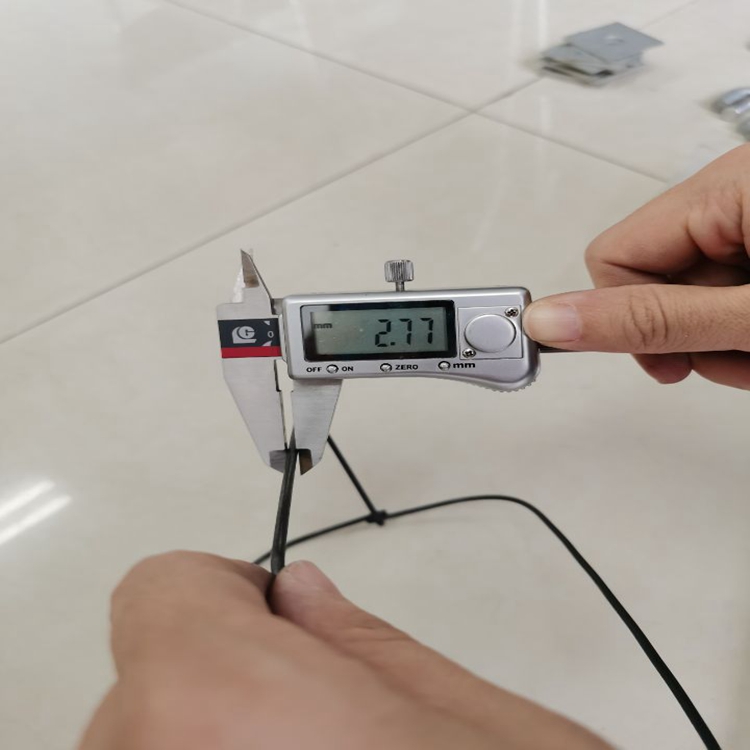Trends in Price and Export of Metal T Posts for Professionals
The Price of Metal T-Posts and the Role of Exporters in the Global Market
Metal T-posts are essential components in various agricultural, construction, and fencing applications. These sturdy, vertical posts, typically made from galvanized steel, provide excellent support and durability. As demand for these materials has grown, so too has the significance of understanding the pricing mechanisms and the roles of exporters in the market.
The Importance of Pricing in the Metal T-Post Market
Pricing for metal T-posts can fluctuate due to a variety of factors, including raw material costs, production expenses, transportation fees, and market demand. The primary raw material for metal T-posts is steel, and its price is influenced by global market trends. For instance, if the demand for steel increases due to heightened construction activity, the price of metal T-posts will likely follow suit. Similarly, if there are disruptions in steel production—due to trade tariffs, shortages, or economic sanctions—these factors can lead to increased prices.
In addition to raw material costs, the manufacturing process also impacts the overall pricing. Manufacturers must contend with expenses related to labor, machinery, and operational overheads. These costs can vary greatly depending on geographical location; for instance, companies in regions with higher labor costs may charge more for their products.
Transport logistics represent another critical component of pricing. Exporters need to account for shipping expenses, customs duties, and tariffs when offering their products in international markets. Variability in fuel prices and changes in shipping regulations can contribute further to cost fluctuations, impacting the final price of metal T-posts for end users.
The Role of Exporters
Exporters play a crucial role in the metal T-post supply chain. They bridge the gap between manufacturers and markets using knowledge of global demand, compliance, and logistics. Consequently, understanding the dynamics of pricing in relation to export activities becomes vital for businesses in this sector.
Exporters often cater to different geographical markets, each with its unique pricing considerations and demands. Some regions may experience higher demand for metal T-posts due to agricultural trends or infrastructure projects. Exporters must continually adjust their strategies to respond to these fluctuations, ensuring competitive pricing while maintaining profitability.
price metal t post exporters

Moreover, exporters need to keep abreast of international market trends that may affect pricing. For instance, a sudden rise in demand for agricultural products in a specific region could spur a heightened need for T-posts. On the other hand, a downturn in construction activities could lead to a surplus of inventory, compelling exporters to adopt pricing strategies that facilitate quick sales, potentially at lower margins.
The Competitive Landscape
In the international market, the competition among exporters is fierce. Companies must offer high-quality metal T-posts at competitive prices to attract buyers. Additionally, effective marketing and distribution strategies are vital in capturing market share. Exporters leverage digital platforms and engage in business-to-business networking to bolster their visibility and reach.
Maintaining relationships with manufacturers ensures that exporters have access to a steady supply of quality products at favorable prices. This relationship is essential, especially during periods of demand surges or when facing supply chain disruptions. Exporters who can optimize their procurement processes typically gain an advantage, allowing for better pricing strategies and customer satisfaction.
Sustainability Considerations
As global awareness of environmental issues grows, sustainability practices play an increasingly prominent role in the metal T-post market. Exporters are beginning to respond to consumer demands for eco-friendly products. This trend could lead to the production of T-posts using recycled metals, potentially influencing pricing structures. Sustainable practices not only appeal to environmentally conscious consumers but can also enhance a company’s reputation.
Conclusion
The pricing of metal T-posts is a multifaceted issue driven by raw material costs, manufacturing expenses, transportation logistics, and international market dynamics. Exporters play a vital role in this system by navigating these complexities while responding to changing market demands. For stakeholders in this industry, understanding these factors is crucial for strategic planning and maintaining competitiveness in a global marketplace. As trends shift and sustainability becomes a priority, the approach to pricing and exporting will continue to evolve, reflecting the dynamic nature of the metal industry.
-
The Durability and Versatility of Steel Wire
NewsJun.26,2025
-
The Best Iron Nails for Your Construction Projects
NewsJun.26,2025
-
Strengthen Your Projects with Durable Metal Stakes
NewsJun.26,2025
-
Get the Job Done Right with Duplex Nails
NewsJun.26,2025
-
Explore the Versatility and Strength of Metal Mesh
NewsJun.26,2025
-
Enhance Your Security with Razor Wire
NewsJun.26,2025














